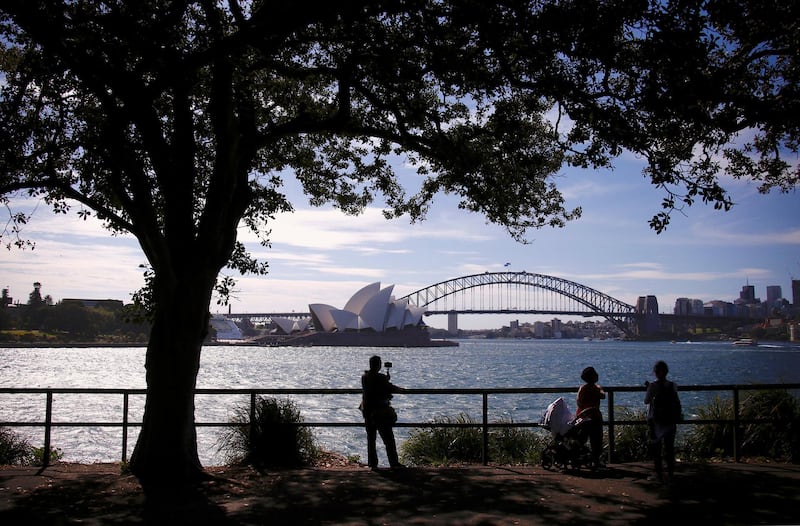An ISIS supporter who helped a teenager kill a police accountant in Sydney was sentenced to 38 years in prison on Friday, as Australia's prime minister argued for greater government power to strip extremists of citizenship.
Milad Atai had pleaded guilty to assisting and encouraging Iranian-born Farhad Jabar, 15, to shoot Curtis Cheng as he walked from the police building on October 2, 2015.
Atai also pleaded guilty to helping Jabar's older sister Shadi Jabar Khalil Mohammed fly to Syria a day earlier. Jabar was shot dead by police, and a year later the sister died with her Sudanese husband in an air strike in Syria.
Justice Peter Johnson of the New South Wales state Supreme Court ordered Atai, 22, to serve a minimum 28 and a half years behind bars before he becomes eligible for parole. Mr Johnson said Atai had supported extreme jihad for several months before the shooting and appeared to still hold radical views.
As Atai was led away from court, he raised an index finger in the direction of the judge in an ISIS salute. A fellow member of his ISIS cell, Raban Alou, gave the same judge the same salute when he was sentenced in March to 44 years in prison for giving Jabar the .38 revolver used to kill Cheng. The 20-year-old must serve at least 33 years in prison.
Talal Alameddine, the 25-year-old who supplied Alou with the gun, was sentenced in May to 17 years in prison and must service at least 13 and a half years.
Prime Minister Scott Morrison on Thursday outlined legislation to strip Australian citizenship from any dual national convicted of a terrorism offence. He wants the legislation passed before parliament goes into recess for the year on December 6.
He also wants to reduce the onus on his government to prove that an extremist is eligible for citizenship in another country. Since laws were enacted to revoke citizenship from extremists in 2015, nine dual nationals have lost citizenship and the government says another 50 are eligible to follow them. It currently applies to Australians who visit war zones controlled by ISIS or those who are sentenced in an Australian court on terrorism charges to at least six years in prison.
_______________
Read more:
[ Three charged over 'chilling' Melbourne terrorism plot ]
[ Melbourne attacker inspired by ISIS, Australian police say ]
Australia PM and Muslim leaders spar over his terrorism comments
[ Australia wants it easier to strip extremists of citizenship ]
_______________
The chief prosecutors of every Australian state and territory have signed a letter to the government raising concerns about the new draft legislation.
Morry Bailes, president of the Law Council of Australia, said the proposed changes were significantly different from the changes to citizenship law agreed by parliament in 2015. The council warned the amendments could breach Australia's international obligations by leaving people stateless.
"These are quite radical proposals to strip away citizenship, so we would strike a note of caution, ask for a proper and consultative process so if these laws are to be entertained, they are gotten right," Mr Bailes said.
Mr Morrison said on Friday that extremists stripped of their citizenship could languish indefinitely in immigration detention if they could not be deported.
"If they are in a position not to be deported, they will remain in immigration detention," the prime minister told the Seven Network TV chanel. "Their citizenship should go if you commit a terrorist act in Australia."
Attorney General Christian Porter acknowledged some countries would refuse to take their citizens back.
Cheng's son Alpha Cheng attended Atai's sentencing and declined to comment to reporters on the government's citizenship bills.
"Regardless of sentences, nothing will take away the pain and the trauma that our family has been put through by these really twisted and depraved individuals," he said.
Atai's behavior in court and his words showed "he is still a tremendous risk to society," he added.
The extremist threat to Australia was highlighted two weeks ago when a Somali-born Australian, who police say was inspired by ISIS, fatally stabbed one man and injured two others before police shot him dead in central Melbourne.
This week, three Australian men of Turkish descent were charged with planning an ISIS-inspired mass-casualty attack in Melbourne, which would likely have happened over the busy Christmas period. Police said the plot had been thwarted with the arrests.





